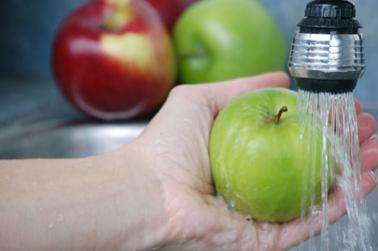
The number of people suffering from food allergies is on the rise these days. What is the reason? Could it be the water or something else? Researchers are investigating an interesting and potential link between increased food allergies and dichlorophenols.
What are Dichlorophenols?
It’ s a long name that describes the reaction that occurs when chlorine is added to water during the purification process. To ensure that drinking water is safe, chlorine is added to remove any bugs and other parasites. Chlorine reacts with the water molecules and produces dichlorophenol.
But, before you begin to look at your tap water as your enemy, dichlorophenols have also been found in pesticides. This is probably the most common use for it: to protect vegetables and fruit trees from potential invaders. It is a major component in commonly used pesticide products on farms.
What the Research Says
Nothing is definitive, but early studies are promising to show a link between increases in food allergies and the percentage of dichlorophenols in a person’s system.
According to research conducted at Albert Einstein College of Medicine in New York, high levels of dichlorophenol in pesticides used on foods can cause a weakness in food tolerance in some people. This can lead to food allergies.
Results from the more than 10,000 participants in the US National Health and Nutrition Examination Survey showed that the participants who had the highest levels of this chemical in their urine were also more likely to develop a food allergy. Over 2,200 had high levels of this chemical in their urine. The most common food allergies represented: peanuts, eggs, milk, wheat, tree nuts, soy, fish and shrimp. This same subsection of the study was over 60 percent more likely to develop environmental allergies as well.
Issues with the Study
Like we stated, there are no definitive conclusions as of yet. It does however show that there is a potential association between the two. More research needs to be done.
For one thing, most of the reported cases of food allergies are not true allergies. People who think they are suffering from them are proven wrong when they are actually tested by a doctor.
Some conclusions
If chlorinated water was the major contributor, logically, more people would be developing allergies. Without the processes needed to make drinking water safe, we would be having worst problems.
As far as pesticide use goes, the increase in environmental issues has raised the question as to how they are affecting our bodies. The increase in allergies is a curious thing in light of this fact.
How safe is our food and does there need to be more regulation of some kind? There is a suspected link between the use of dichlorophenols in drinking water and pesticides and the increase in the number of food allergies so something should be done to find a safe alternative.

